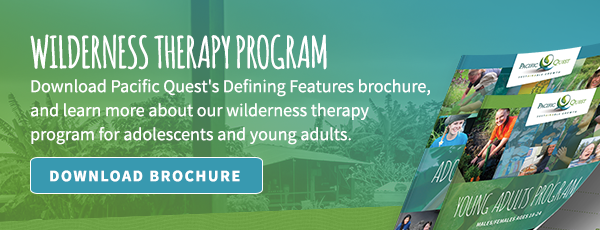The adolescent years are a critical window of vulnerability for alcohol and drug abuse. Experimentation is common. Unfortunately, often teens don’t see the link between their actions today and the consequences tomorrow.
Did you know that by the time teens reach their senior year in high school, almost 70 percent will have tried alcohol, half will have experimented with an illegal drug, around 40 percent will have smoked cigarettes and more than 20 percent will have sampled prescription drugs for nonmedical purposes? Teen alcohol and drug abuse is a prevalent and immediate concern. Teens at risk of developing serious addictions include those:
- with a family history of substance abuse
- who have depression
- who have low self-esteem
- who feel like they don’t fit in
Getting to the Root of the Problem
Clearly, drug use is connected with a variety of negative consequences. There are several unknowns about how abusing drugs may affect a developing brain. Identifying and intervening as early as possible is an urgency that is wholly matched by the difficulty of reaching the adolescent who needs help. Most teens don’t want (or think) they need help. It is critical for parents to be attentive and vigilant, rather than dismissive of any signs pointing to alcohol and drug abuse.
Is My Teen an Addict?
Genetic factors and life stressors are two contributing components that have a large influence on addiction.
There are many warning signs that parents often dismiss or attribute as “typical teenager attitude.” While these signs may not necessarily point to teenage alcohol and drug abuse, parents should recognize them as potential warning signs. These signs may include:
- Physical: Fatigue, repeated health complaints, red and glazed eyes, a lasting cough
- Emotional: Personality change, sudden mood changes, irritability, irresponsible behavior, low self-esteem, poor judgment, depression and a general lack of interest
- Family-related: Starting arguments, breaking rules and withdrawing from the family
- School-related: Decreased interest, negative attitude, drop in grades, frequent absences, truancy and discipline problems
- Social problems: New friends who are less interested in standard home and school activities, problems with the law and/or changes to less conventional styles in appearance.
The Consequences
Substance abuse (whether the substance of choice is alcohol, cigarettes, drugs, prescription pills or a combination) leads to a host of problems. Here are some somber facts:
- Tobacco harms nearly every organ in the body. In teens, it hastens the onset of lung function, not to mention it can affect activities and athletic performance as tobacco narrows blood vessels and puts a strain on the heart.
- Consequences of substance abuse affect teenagers in many areas: academically, physically, mentally and socially. Drug abuse can inhibit the brain’s function and prevent proper growth and development, creating memory problems, a decrease in learning potential and by replacing expectations of pleasure with the results of unhealthy habits.
- It’s important to realize that consequences reach into another important but much overlooked area: the family. Families often struggle when a family member is abusing substances. The family’s unity, mental health, physical health and finances may also be
The use and abuse of alcohol and drugs is a serious issue that should not be ignored or minimized. If you feel your teenager may be entering troubled waters, it may be time to get help. The road ahead may be filled with challenges, but you can help your teenager discover a better way of living.

Is It Just a Phase, or Is Your Teen Becoming an Addict?
The adolescent years are a critical window of vulnerability for alcohol and drug abuse. Experimentation is common. Unfortunately, often teens don’t see the link between their actions today and the consequences tomorrow. Did you know that by the time teens reach their senior year in high school, almost 70 percent will have tried alcohol, half …
The adolescent years are a critical window of vulnerability for alcohol and drug abuse. Experimentation is common. Unfortunately, often teens don’t see the link between their actions today and the consequences tomorrow.
Did you know that by the time teens reach their senior year in high school, almost 70 percent will have tried alcohol, half will have experimented with an illegal drug, around 40 percent will have smoked cigarettes and more than 20 percent will have sampled prescription drugs for nonmedical purposes? Teen alcohol and drug abuse is a prevalent and immediate concern. Teens at risk of developing serious addictions include those:
Getting to the Root of the Problem
Clearly, drug use is connected with a variety of negative consequences. There are several unknowns about how abusing drugs may affect a developing brain. Identifying and intervening as early as possible is an urgency that is wholly matched by the difficulty of reaching the adolescent who needs help. Most teens don’t want (or think) they need help. It is critical for parents to be attentive and vigilant, rather than dismissive of any signs pointing to alcohol and drug abuse.
Is My Teen an Addict?
Genetic factors and life stressors are two contributing components that have a large influence on addiction.
There are many warning signs that parents often dismiss or attribute as “typical teenager attitude.” While these signs may not necessarily point to teenage alcohol and drug abuse, parents should recognize them as potential warning signs. These signs may include:
The Consequences
Substance abuse (whether the substance of choice is alcohol, cigarettes, drugs, prescription pills or a combination) leads to a host of problems. Here are some somber facts:
The use and abuse of alcohol and drugs is a serious issue that should not be ignored or minimized. If you feel your teenager may be entering troubled waters, it may be time to get help. The road ahead may be filled with challenges, but you can help your teenager discover a better way of living.
Questions? Call or Text our Admissions Team: 808-937-5806